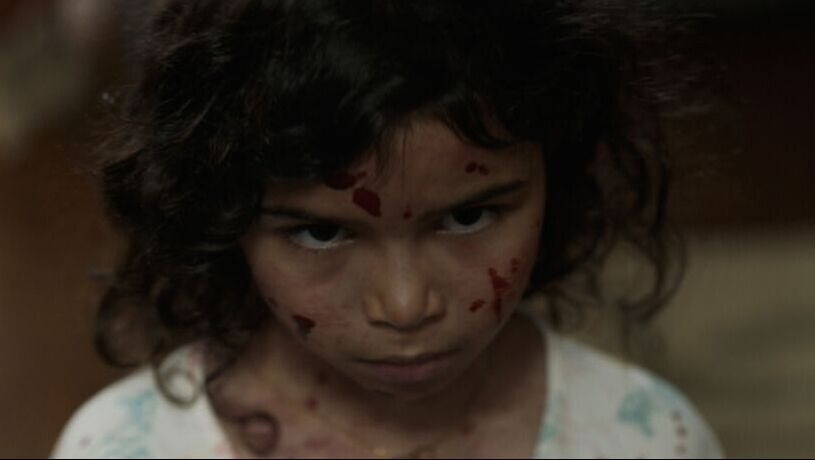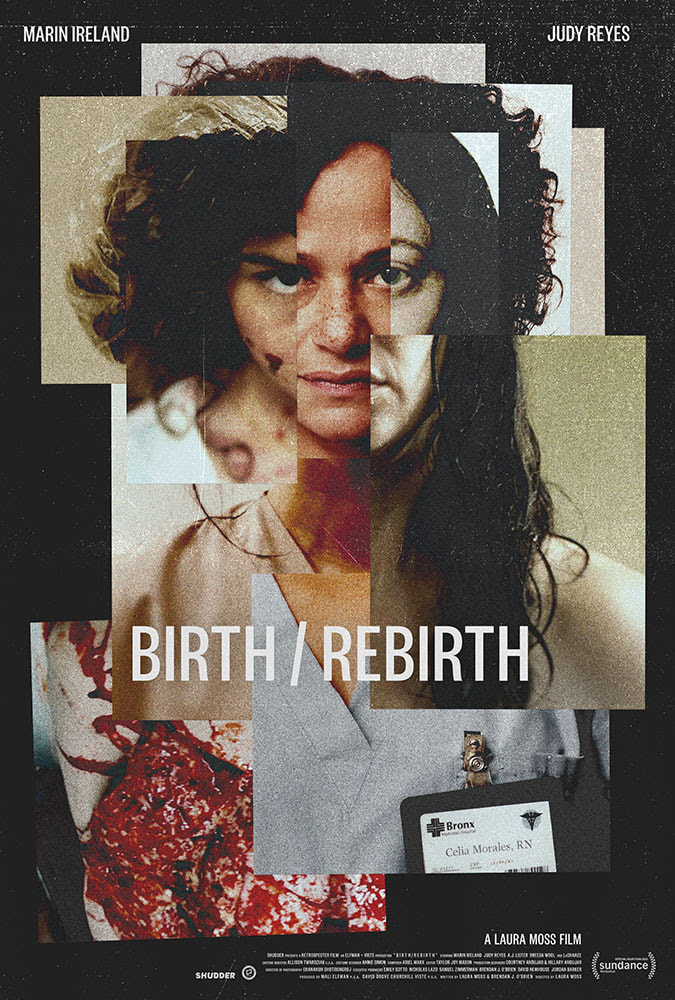|
On a stormy afternoon in 1816, Mary Shelley wrote one of the most influential works of horror to ever scream off the page, “Frankenstein”. The work has inspired hundreds of film adaptations, from James Whales’ 1931 classic to Larry Fessenden’s more recent 2019 endeavor, Depraved, and everything in-between. Yet no matter how many times this story is told, there’s always room for a new interpretation, as proven by Laura Moss’ feature debut which just premiered at the Sundance Film Festival, Birth/Rebirth. Written by Moss and Brendan J. O’Brien, Birth/Rebirth follows maternity nurse Celie (Judy Reyes), fraught with grief after her little girl, Lila (A.J. Lister) suddenly dies while she’s at work. After discovering that pathologist Rose (Marin Ireland) has brought Lila back to life using an experimental serum designed to “treat death”, Celie insists the doctor let her assist with her daughter’s “treatment”, soon discovering that there are few lines they won’t cross in order to keep the little girl alive. I don’t know about you but I’ve grown weary of the countless iterations of Mary Shelley’s tale that see two men playing God out of some sort of womb-envy that has them wanting to create life without considering or caring about the consequences. Been there, done that. Moss’ film, however, is a fresh new take on the Frankenstein story because it tells it from a perspective that we’ve rarely seen in film; That of the mother. And not just a generalized version of motherhood, either, but a complex, difficult approach to what the ability to give life truly means. Just as there are various versions of Shelley’s story, Moss presents a different understanding of motherhood through each woman which the film crosses paths with. On one hand we have Celie, a caring, empathetic mother who would give the world to Lila if she only asked for it. On the other side is Rose, a cold, disconnected person who is as emotionally stunted as she is brilliant. Life, love, everything is secondary to the sacrificial demands of science, including herself. Where a woman’s womb would be deemed sacred to some, Rose merely uses it as a tool for her experiments. As Celie puts it, Rose is a “mad scientist princess bitch”. Both actresses are phenomenal in their roles. Each demands the attention of the audience, giving life to wonderfully written characters imbued with complicated personalities that allow for moments of endearment, abject terror and everything in-between. It cannot be understated how vital Reyes and Ireland are to the success of Birth/Rebirth. This is, after all, less of your traditional monster movie and more of an intimate character study. The “monster” aka Lila isn’t on the loose and wreaking havoc. She’s a fragile patient under the care of two very different mothers, one that gave birth to her, and one that brought her back from the grave. Eventually living together so that they can keep a constant eye on Lila, this queer-coded film shows us two opposite sides of parenting. In Celie, an unbreakable warmth. In Rose, an impenetrable distance, the sort of person who doesn’t understand feelings and forgets to feed her kids. What Moss does with Birth/Rebirth is tell a human story about the wonder and tragedy of motherhood. “There’s nothing supernatural or fantastical about it. This is good science,” proclaims Rose. Those of you wanting a scary creature feature with an undead child running around will have to look elsewhere. In this film, our emotions—or lack thereof—and the cruel methods of science are the horror. Matching Rose’s personality is Moss’ callous approach to death. In just the first few minutes, we’re presented with the nastiness of guts being pulled from a corpse with all the indifference of watching a pot of water boil. Cold lighting and Ariel Marx’s haunting score work to enhance the disconnect which the central characters either already have or begin to have to the world around them. Science has no feeling. It’s cruel. It’s severe. Nothing but the experiment matters. Rather than have you jump out of your seat, Moss gets the viewer to squirm with the unsettling reminder of the horror, the souls that have been sacrificed, for every miracle drug we think nothing of as we purchase it from over the counter. Because of its nature, Birth/Rebirth is a slow-drip of a film that takes its time in developing characters so that when the punches do occur, they hit like an anvil to the chest. Though with so much time spent on opening a window into the souls of Celie and Rose, the narrative does begin to lose its momentum about halfway through. This may be the only Frankenstein story—at least that I can think of—in which the “monster” is hardly involved at all. Moments of suspense or tension are lacking, leaving the film as tonally flat as the corpses which Rose works on in the basement of the hospital for much of the way. Again, it cannot be said enough how vital the captivating performances from Reyes and Ireland are. Regardless of any pacing issues, Birth/Rebirth is a strong feature debut from Moss that has my undead heart beating at the thought of what she might do next. Emotionally rich characters. Poignant themes. And a stunning third act that will pulsate in my mind for months, Birth/Rebirth is a crisp new take on the Frankenstein story that every fan of Shelley’s work should see. By Matt Konopka
0 Comments
Leave a Reply. |
Archives
March 2023
|



 RSS Feed
RSS Feed